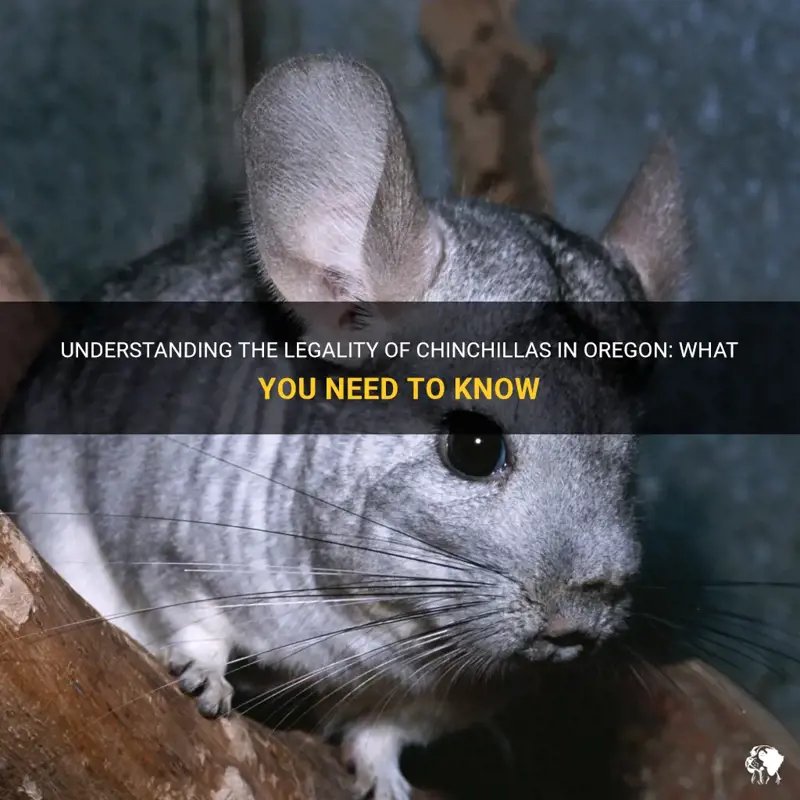
Think of it like planning a road trip. Just as you wouldn’t hit the road without checking if your vehicle is in good shape and knowing the rules of the road, you shouldn’t dive into chinchilla ownership without being informed of the legal landscape. In this article, we’ll explore where chinchillas are legal, the regulations that may affect their ownership, and what you need to know if you’re considering bringing one of these furry friends into your home.
What Are Chinchillas, Anyway?
Before diving into the legalities, let’s talk about what chinchillas are. Native to the Andes Mountains in South America, chinchillas are small rodents known for their incredibly soft fur. They come in various colors, but the most common is a greyish shade. They are social animals, often best kept in pairs or small groups, and require a fair amount of care and attention.
Chinchillas are nocturnal, which means they’re most active at night—think of them as your furry little night owls. They can be a joy to have around, but they also require specific environments to thrive. This is where the legal considerations come into play, as almost all places with regulations on pets will require you to meet certain care standards for chinchillas.
Are Chinchillas Legal in the United States?
You might be surprised to learn that laws around chinchilla ownership can vary widely across the U.S. In most states, chinchillas are legal to own as pets. However, there are exceptions, especially when it comes to certain cities or counties that have their own regulations. For example, some cities may have restrictions on owning exotic animals, which can include chinchillas.
For instance, in New York City, owning a chinchilla requires a pet license, and you need to ensure you’re following the city’s pet care guidelines. Some restrictions might also apply based on the way chinchillas are kept or bred, so it’s worth checking local laws before making any moves.
Here’s a quick list to keep in mind:
- Most states allow chinchilla ownership.
- Check local regulations; some cities have specific pet laws.
- Some areas may require permits for exotic pets.
Outside the U.S.: Where Are Chinchillas Legal?
If you’re outside the United States, the legality of chinchillas can vary even more. In countries like Canada, chinchillas are generally legal to keep as pets, but again, local laws may impose restrictions. In some parts of Europe, regulations can be stricter. For example, some countries might require permits for exotic animals, including chinchillas, especially if they are bred or sold.
Here’s how it breaks down in a few regions:
- Canada: Generally legal; check local pet ownership rules.
- United Kingdom: Legal, but breeding may require a license.
- Australia: Often illegal to keep; check specific state regulations.
If you’re considering relocating with a chinchilla or traveling internationally, always consult local authorities before making plans.
What Regulations Affect Chinchilla Ownership?
It’s not just about whether it’s legal to own a chinchilla; regulations can impact how you care for them as well. Many regions have rules regarding the minimum requirements for pet care, including housing, diet, and interaction. For example, some laws may require that chinchillas are kept in pairs to prevent loneliness, as they are social creatures.
You may also find regulations covering their breeding. In some places, specific licenses are needed if you plan to breed chinchillas. This is to ensure the animals are raised humanely and responsibly, preventing overbreeding or neglect.
Also, certain areas may outline the kind of environment you should provide, specifically focusing on:
- Space for exercise and play.
- Proper heating and cooling to avoid temperature extremes.
- Access to a varied diet, including hay, pellets, and occasional treats.
Understanding these regulations helps ensure that you not only comply with the law but also provide a loving and suitable environment for your new pet.
How to Check Your Local Laws
If you’re wondering how to find out if chinchillas are legal in your area, it’s easier than you might think. Start with a quick online search, but don’t stop there. Local animal control offices or wildlife agencies can provide clarity on regulations specific to your town or county. Additionally, check with pet shops or breeders; they often have a good handle on the laws surrounding exotic pets.
When in doubt, reaching out to local advocacy groups or animal welfare organizations can also help clarify what’s permitted. They often have resources and information tailored to your area’s laws.
Here’s a step-by-step to check your local laws:
- Search online for pet ownership laws in your city or state.
- Contact your local animal control office for specific regulations.
- Reach out to local chinchilla breeders or pet shops for firsthand insights.
- Consult animal welfare organizations for additional resources.
What Happens If You Own a Chinchilla Illegally?
Owning a chinchilla illegally can lead to various consequences, ranging from fines to confiscation of the animal. It’s essential to understand the risks before bringing one home. In some cases, you might be given a warning, but in others, you could be facing heavier penalties, especially if the animal is deemed to be in poor condition due to lack of proper care.
If you find yourself in trouble with local laws, the best course of action is to cooperate with authorities and discuss options for rehoming your chinchilla to a legal and responsible pet owner. It’s better to ensure the safety and happiness of your pet rather than trying to hide the situation.
Bringing a chinchilla into your home can be a rewarding experience. Their playful nature and unique personalities can add a special touch to your life. However, it’s crucial that you do your homework on the legal considerations before making one a part of your family.
By being informed about local laws and regulations, you can ensure not only that you’re acting within the law but also that you’re prepared to meet the needs of your new furry friend. Remember, responsible ownership starts with understanding your responsibilities. Happy chinchilla parenting!

